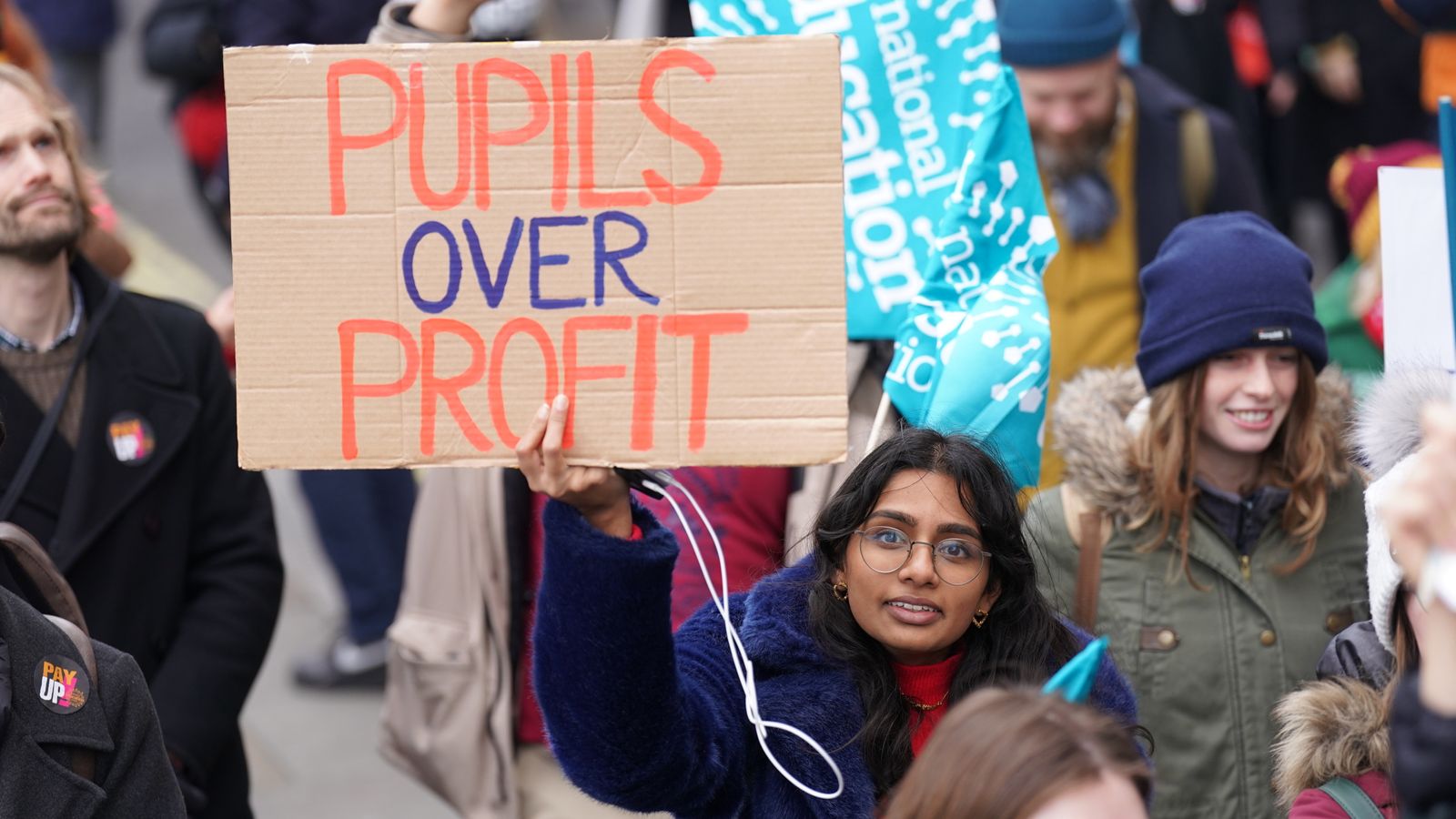Headteachers have “overwhelmingly” rejected the government’s pay offer, with a union representing school leaders branding it “inadequate in every respect”.
The Association of School and College Leaders (ASCL) has not ruled out asking its members to vote on formal strike action after hitting out at the government’s “lacklustre set of proposals” for ending the industrial dispute.
Members of the school leaders union followed the National Education Union (NEU) in knocking back the government’s offer on Tuesday.
The NEU had previously branded the government’s offer of a £1,000 one-off payment granted in 2022/23, as well as a 4.5% average pay increase for the following year, as “insulting”.
Some 87% of ASCL union members who took part in a survey voted to turn down the deal, with 69% citing the “inadequacy” of the additional funding for next year as the main reason for rejecting the offer.
As part of the deal, 4% of the funding for next year would come from school budgets, while 0.5% would be provided by the government and some non-pay measures.
The school leaders union had put the offer to its members neutrally – neither recommending it nor urging members to reject the proposed deal.
Politics latest:
Updates on Starmer, Lawson tributes and local elections
But following the membership survey, ASCL general secretary Geoff Barton was extremely critical of the government’s approach.
He said: “The government’s pay offer is inadequate in every respect. It fails to address long-term pay erosion, the teacher recruitment and retention crisis, or provide enough funding for schools to be able to afford even the meagre pay award that is on the table.
“Talks with the government were immensely frustrating and it took an eternity to inch towards this lacklustre set of proposals. Ultimately all we could do is put it to members and let them decide.
“It is no surprise that they have overwhelmingly rejected the offer.”
Mr Barton stressed that the union had not yet decided whether it would move towards a formal ballot on strike action but said this was “certainly an option”.
“We are aware that there will be speculation about whether we will move to a formal ballot on industrial action, a step we have not yet taken because we have been focused on trying to resolve this situation through negotiation,” he said.
“This is certainly an option that will be discussed but we would emphasise that no decision on this front has been taken in either direction.”
Read more:
Labour criticised for missing teaching conference
I’m a teacher – here’s why I voted to go on strike
Fresh strikes loom
The results of the ASCL survey come after the NEU, which represents teachers and other education workers, confirmed further strikes in England for 27 April and 2 May.
Delegates at the NEU conference, which is taking place this week, also called on the executive to timetable a three-day strike for late June and early July.
The union added it would also re-ballot members on possible strike action for the next academic year.
If the ballot is successful, there could be “action in the autumn term”.
Kevin Courtney, joint general secretary of the NEU, said: “If the government does not resolve the current pay dispute, the NEU will re-ballot members for a renewed mandate for further industrial action in the next academic year.”
Education Secretary Gillian Keegan said the new strikes were “extremely disappointing” and would mean “more disruption for children and less money for teachers today”.
The government said it had offered teachers a £1,000 payment for the current school year – on top of an average 5.4% rise last September – plus an average 4.5% rise next year.
More than 195,000 members voted in the NEU ballot (a 66% turnout), with more than 191,000 rejecting it.
The NEU said between 42% and 58% of schools would have to make cuts to afford the offer.






















